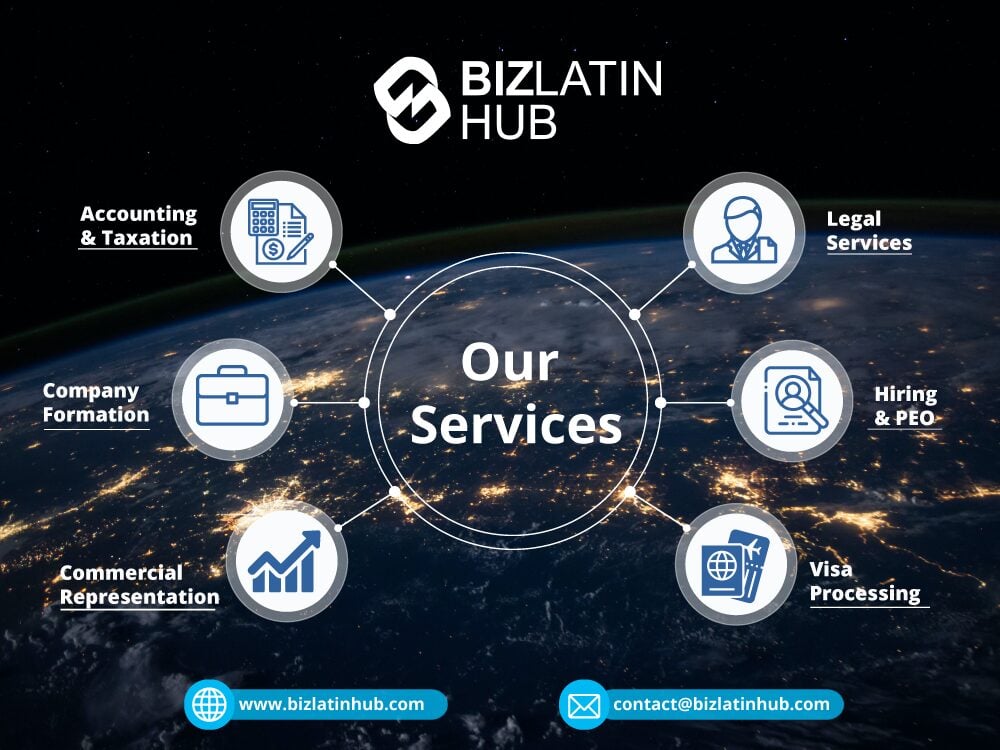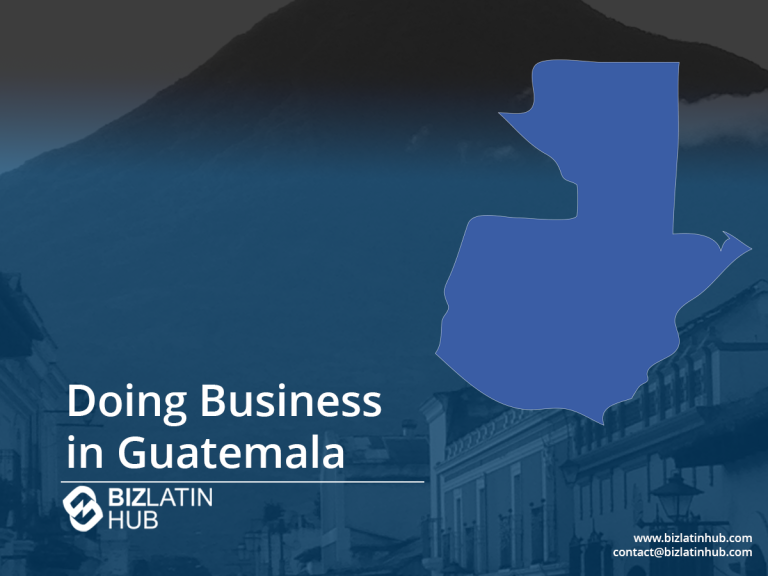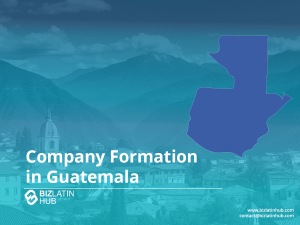Guatemala has experienced significant growth over recent years, turning it into one of the most competitive markets in Central America. Meanwhile, doing business in Guatemala is becoming increasingly popular. Annual economic growth has only dropped below 2.5 percent on one occasion since 2000, and the country’s international commerce accounts for more than 30 percent of Central America’s total imports and exports.
The government has made great efforts to stimulate doing business in Guatemala and foreign direct investment (FDI) and has reached free trade agreements with various Latin American countries, including Colombia, Costa Rica, the Dominican Republic, Honduras, Panama, and El Salvador.
More and more investors are becoming aware of the advantages of registering a company in Guatemala. Biz Latin Hub can guide you through the process of both starting up and operating on a day-to-day basis. Our full array of business support and back office services can help you with doing business in Guatemala or any of the other 17 countries in Latin America and the Caribbean where we have an office.
Why invest in Guatemala?
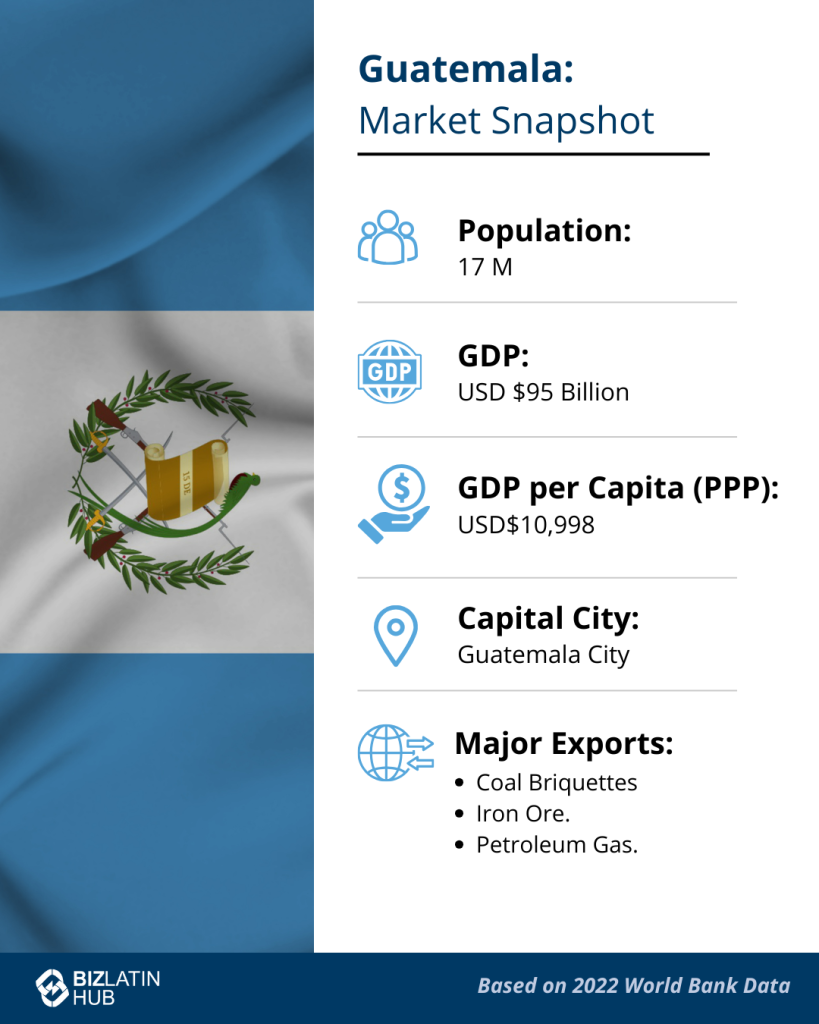
Guatemala is located in the northern part of Central America, bordering Mexico and Belize to its north. As such, it forms a gateway between North America and the rest of Central and South America. With coasts on the Pacific Ocean and Caribbean Sea, Guatemala also has five important maritime ports, as well as two international airports, which is helpful for commerce.
As a key member of the Central American block, Guatemala is active in CAFTA, the free trade agreement between the United States and the nations of the peninsula.
According to data from the Bank of Guatemala, in 2023 Guatemala and Mexico had a commercial exchange that amounted to USD$2.8 billion. Meanwhile, according to data from Mexico’s Ministry of Foreign Affairs, since the 1990s Mexican companies have made an accumulated investment in Guatemala of more than USD$577 billion. This positions Mexico as a crucial trade partner to Guatemala.
What is the workforce like for doing business in Guatemala?
Guatemala has the largest population in Central America with more than 17.3 million inhabitants, according to data from the Central American Integration System. The country also has a young population, with 70 percent of Guatemala’s population under 40 years of age.
The Central American country has a solid academic base, both in the public and private sectors, with the National Institute of Statistics of Guatemala (INE), reporting that there were 41,529 graduates in 2023, highlighting the availability of young and skilled labor available if you are doing business in Guatemala.
An additional advantage of doing business in Guatemala is the competitive cost of the labor force. In 2024, the monthly minimum wage stood at:
- Agricultural Activities: GTQ$3,266 = USD$420
- Non-Agricultural Activities: GTQ$3,384 = USD$435
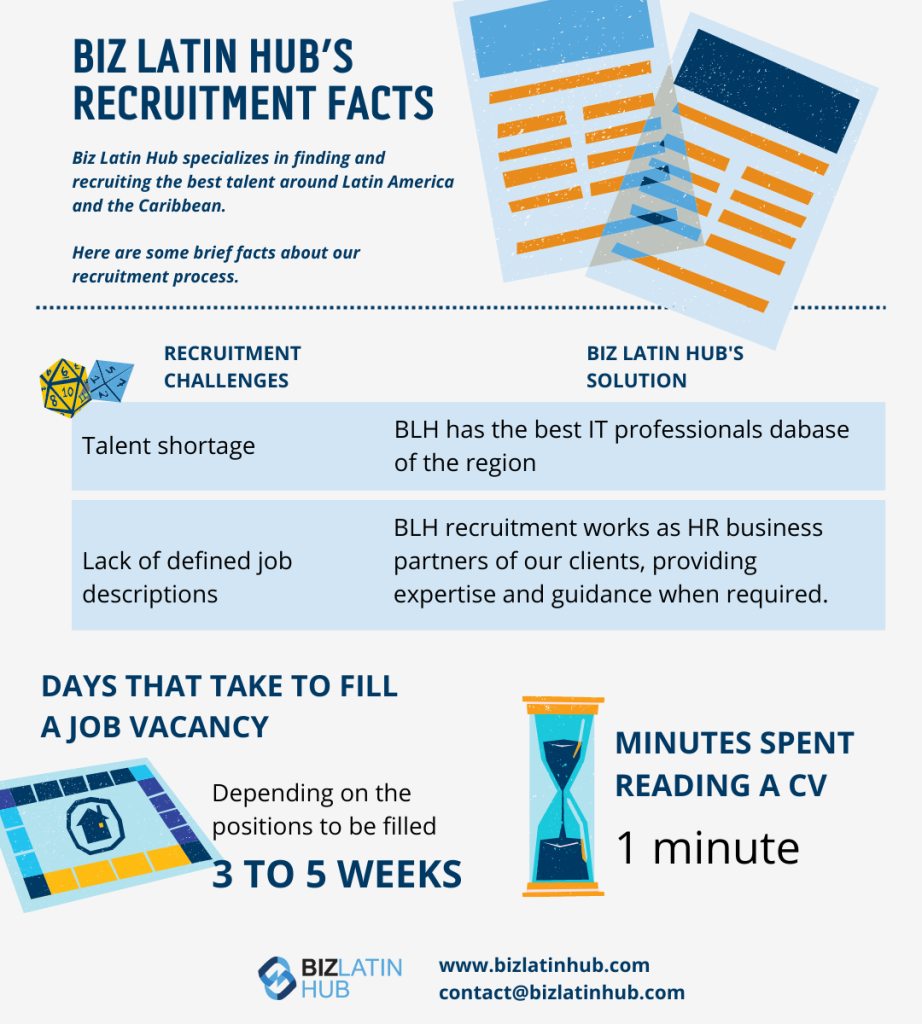
What economic diversity is there in Guatemala?
Guatemala’s economic diversity is highly attractive to individuals and firms interested in doing business in Guatemala. Key sectors for foreign investment include agriculture, aquaculture and fisheries, manufacturing, services, call centers, clothing and textiles.
Guatemala’s exports in 2021 were valued at USD$13 billion, which accounted for 19 percent of the country’s GDP. The most exported products during 2021 were:
- Coffee and spices: USD$1.6 billion
- Apparel: USD$1.4 billion
- Fruit and nuts: USD$1.2 billion
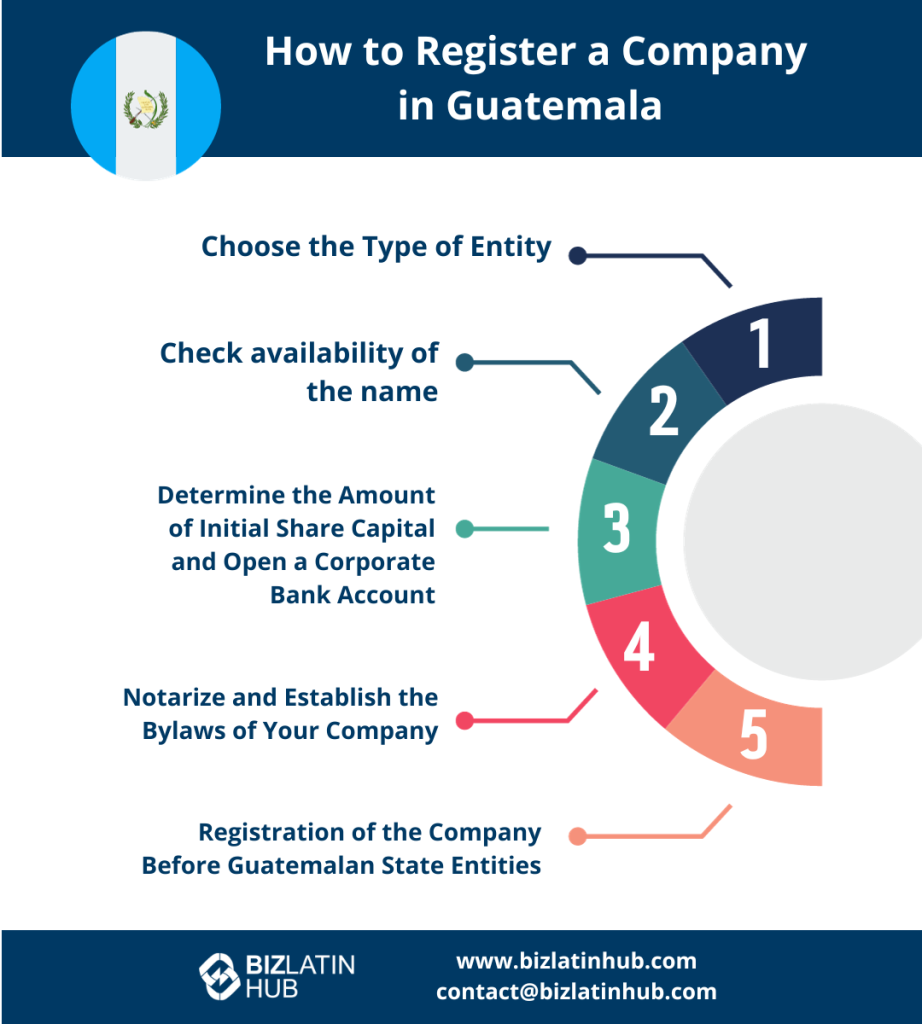
FAQs on doing business in Guatemala
In our experience, these are the most common questions that we are asked by clients who want to enter the Guatemalan market.
Yes, 100% foreign ownership is permitted in Guatemala
The monthly minimum wage for 2024 in Guatemala is USD$435 per month, or USD$420 for agricultural workers.
Yes, Guatemala is a key member of the CAFTA agreement with the United States of America and Central American countries. This also includes a further agreement with the Dominican Republic. On top of that, the country has signed agreements with a number of other Latin American countries.
It takes eight to ten weeks to begin operating in Guatemala if all your paperwork is in order.
Yes, the country has five major seaports and two major airports as well as being on the Panamerican Highway. This makes it easy to move goods to a number of locations, especially North America.
Yes, last year alone saw over 40,000 students graduating from the country’s universities, meaning the country has a solid base of well educated workers at competitive rates.
Biz Latin Hub can help you with doing business in Guatemala
Engage with local experts to take advantage of business opportunities in Guatemala. At Biz Latin Hub, our team of experienced professionals provide market-leading assistance in a host of sectors, such as company formation and a full suite of back-office services. Contact us now for more information on doing business in Guatemala.
Learn more about our team and expert authors.
